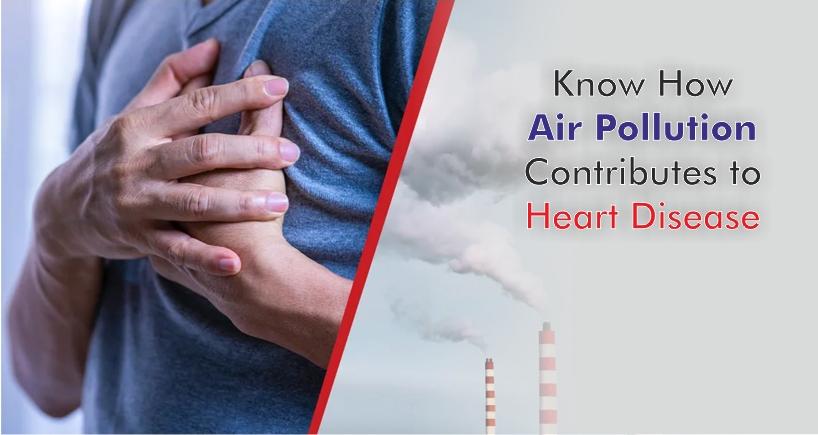
Know How Air Pollution Contributes to Heart Disease
Air pollution can have significant adverse effects on the heart and contribute to the development of heart disease in several ways:
1. Inflammation: Inhalation of pollutants like fine particulate matter (PM2.5) can trigger an inflammatory response in the body. Chronic inflammation is a risk factor for heart disease as it can damage blood vessels and increase the risk of plaque build-up.
2. Oxidative Stress: Air pollutants, such as ozone and nitrogen dioxide, can lead to oxidative stress in the body. This can damage the cells that line blood vessels and contribute to the development of atherosclerosis (hardening of the arteries).
3. Blood Pressure: Air pollution is associated with an increase in blood pressure, which is a significant risk factor for heart disease. High blood pressure can strain the heart and increase the risk of heart attacks and strokes.
4. Reduced Oxygen: Pollution can reduce the oxygen-carrying capacity of the blood, which can put added stress on the heart. This is especially harmful for individuals with pre-existing heart conditions.
5. Arrhythmias: Air pollution has been linked to cardiac arrhythmias, which can be dangerous for individuals with heart disease as they can lead to complications like sudden cardiac arrest
6. Hospitalization: Long-term exposure to air pollution is associated with an increased risk of hospitalization for heart-related issues, including heart attacks and heart failure.
Protecting yourself from air pollution in Delhi can be challenging, but there are several measures you can take to reduce your exposure:
1. Stay Informed: Keep an eye on air quality indexes and pollution levels, and try to stay indoors when the air quality is particularly poor.
2. Use Air Purifiers: Consider using indoor air purifiers with HEPA filters to improve the air quality in your home or office.
3. Ventilation: Keep windows and doors closed during times of high pollution to prevent outdoor air from entering.
4. Wear Masks: Use N95 or N99 masks when going outside, especially during high pollution days.
5. Avoid Outdoor Exercise: Try to exercise indoors on days with poor air quality to minimize exposure.
6.. Reduce Outdoor Activities: Limit your time spent outdoors, especially during peak pollution hours.
7. Avoid High-Traffic Areas: If possible, avoid areas with heavy traffic as they tend to have higher pollution levels.
8. Use Public Transportation: Opt for public transportation or carpooling to reduce individual vehicle emissions.
9. Plant Indoor Air-Purifying Plants: Certain indoor plants can help improve indoor air quality
10. Contribute to Pollution Reduction: Support pollution-reducing initiatives, such as tree planting, and follow local regulations and guidelines on pollution control.
11. Stay Hydrated and Maintain a Healthy Diet: Staying hydrated and consuming a diet rich in antioxidants can help your body combat the effects of air pollution.
12. Regular Health Check-ups: Consider regular check-ups with a healthcare professional to monitor any health issues related to air pollution.
It's essential to protect yourself from air pollution by reducing exposure through measures like staying indoors during high pollution days, using air purifiers, and wearing masks. Additionally, public policies and efforts to reduce air pollution can have a significant impact on public health and help mitigate the risk of heart disease.
Categories
Clear allMeet the doctor

- Cardiac Sciences | Adult CTVS (Cardiothoracic and Vascular Surgery) | Heart Transplant | Heart & Lung Transplant | Vascular Surgery | Paediatric CTVS (Cardiothoracic and Vascular Surgery)
-
38 Years
-
1600



















